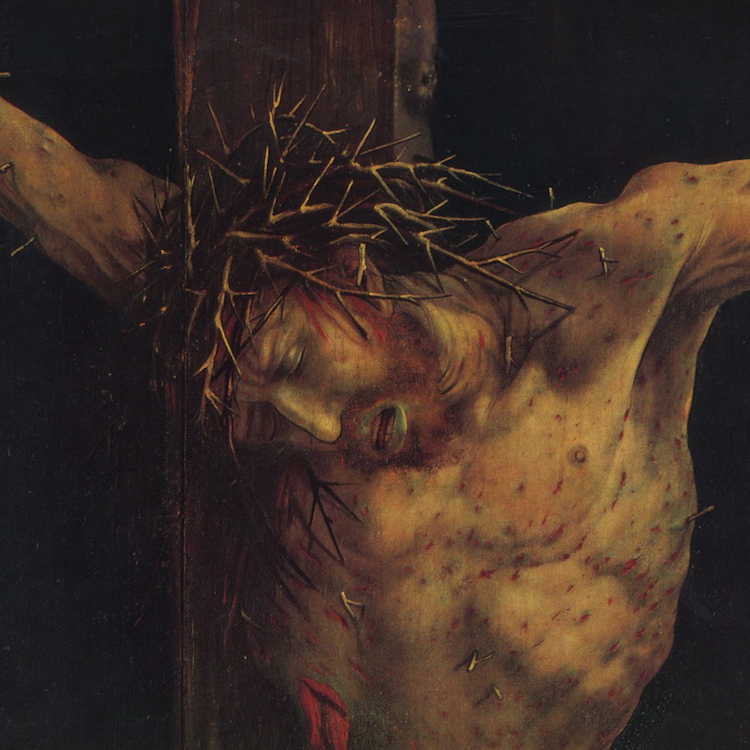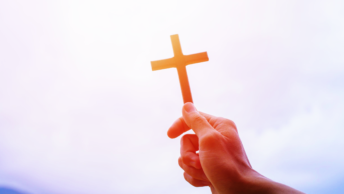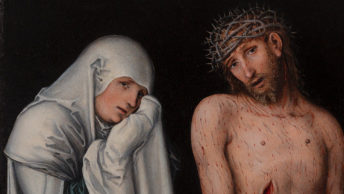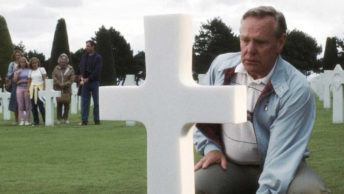A friend of mine is a retired police detective. Over the years, I’ve asked him on numerous occasions what it is like to investigate the scene of a crime. He has told me that in most instances, he was sent because a distress call had been placed regarding a B&E, robbery, or sometimes even a homicide. Prior to arriving there, he reflected that images would fill his mind of what he might find and how he might respond.
Through the years, some of us in this church today have heard the Passion of Our Lord read aloud many times. And yet, for others, they will have heard it only a few times. From whatever our vantage point may be, it may be said that we hear it in both collective and individual ways.
On Good Friday we are collectively transported to a crime scene. Upon arriving there, we find that is very dark. It is a place where cruelty and deception have played themselves out. It is a place where the dice have been rolled. And death has transpired. As we enter more deeply into this reality, we find that two criminals have been crucified. But quickly, our focus shifts. And we find that between them hangs the innocent, blameless, and sinless Son of God. As we gaze upon Him, we see the severity of Jesus’ injuries. We repel at His beaten, bruised, scourged, and pierced body. In noting that only a few faithful women remain at the foot of His Holy Cross, we wonder how this has come to be. How is it possible that Jesus is so abandoned and alone? Where are His chosen followers and those thought to be his faithful friends?
In reflecting upon this some two thousand years later, we acknowledge that we are but Monday-morning quarterbacks. We know the movement of salvation history. After man’s fall from grace, the prophets beckoned our return to God—and that God would send us a Savior. And in John’s Gospel (3:16), God reveals both His love and motivation for doing so: “For God so loved the world that he gave his only-begotten Son, that whoever believes in him should not perish but have eternal life.”
In pondering this short and famous scripture, it should be obvious that God’s love for us cannot be measured. He did sacrifice His only Son for us—so that we might live. Today, two millennia removed from the Crucifixion, most U.S. Catholic Christians are able to sit comfortably, listen, and reflect upon what happened on that first Good Friday. In silence, we ask ourselves: How would we have behaved? Would we have been among the faithful women or would we have fled the scene?
While we don’t know the exact answer to that question, a good investigator would be able to pinpoint our proximate whereabouts, perhaps by even using a description of Judas Iscariot given by Pope Benedict XVI:
Judas is neither a master of evil nor the figure of a demoniacal power of darkness but rather a sycophant who bows down before the anonymous power of changing moods and current fashion. But it is precisely this anonymous power that crucified Jesus, for it was anonymous voices that cried, ‘Away with him! Crucify him.’
Now for those of us who are etymologically challenged, a sycophant is a person who acts obsequiously toward someone important in order to gain advantage. In short, a sycophant is a “yes” man, a bootlicker, and a brown-noser. How many of us see ourselves this way? To put it another way, how many of us simply go along to get along? That is, how many of us seek the path of least resistance so that we do not offend the behavior of others or appear as judgmental?
But has not Jesus taught us right from wrong? Has not God given us the Commandments and written His law and life upon our hearts? Despite this, how often do we look the other way when we are confronted with—wrong? For example, when we come face to face with those who declare that abortion is a choice rather than murder, how many of us refuse to step up and clarify God’s law? Or when those among us proclaim that marriage is anything but the joining of a man and a woman, how many of us also look the other way? Through our unfaithfulness, can we say that we are any different than those who denied knowing Jesus or fled His presence when the powers of evil came calling? And in doing so, have we not abandoned Him in the public square—where His presence is needed the most?
This past week, I met a friend at a restaurant where we were served by a Chaldean, Catholic woman. After thanking her for the kind hospitality she showed us, our conversation eventually turned to faith. After noting that I was the father of five children and my friend the father of four, she responded that she was the mother of three. She began to describe how her teenage children were chiding her for taking them to Mass and how their friends proudly pointed out that their parents—don’t. With my friend staring at me, I asked her why she takes her children to Mass. And like Mary, she proclaimed that God has done great things in her life. God had given her all that she has and that His presence in her life is all that she needs and that she wanted to share this with her children. She wants them to know that God loves them so very dearly.
On Good Friday, isn’t this the message? As He hangs before us, does not God remind us that despite our transgressions and turning away from Him, that He always remains with us and for us. By His infinite love, He never turns from us, but allows each of us the freedom to turn away from Him. And this is our choice.








